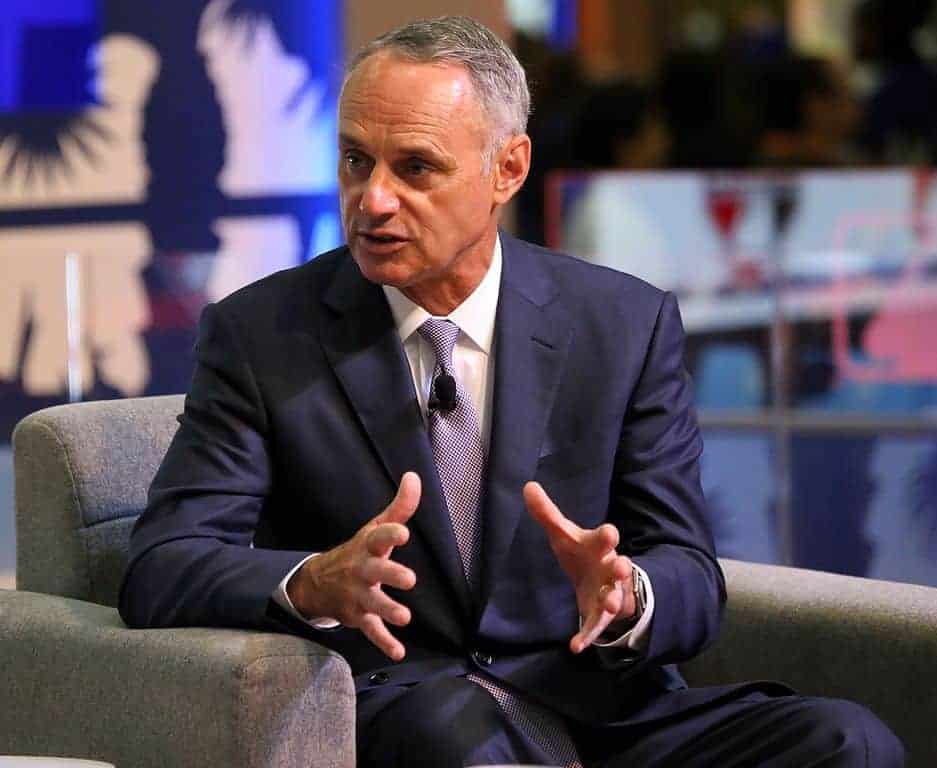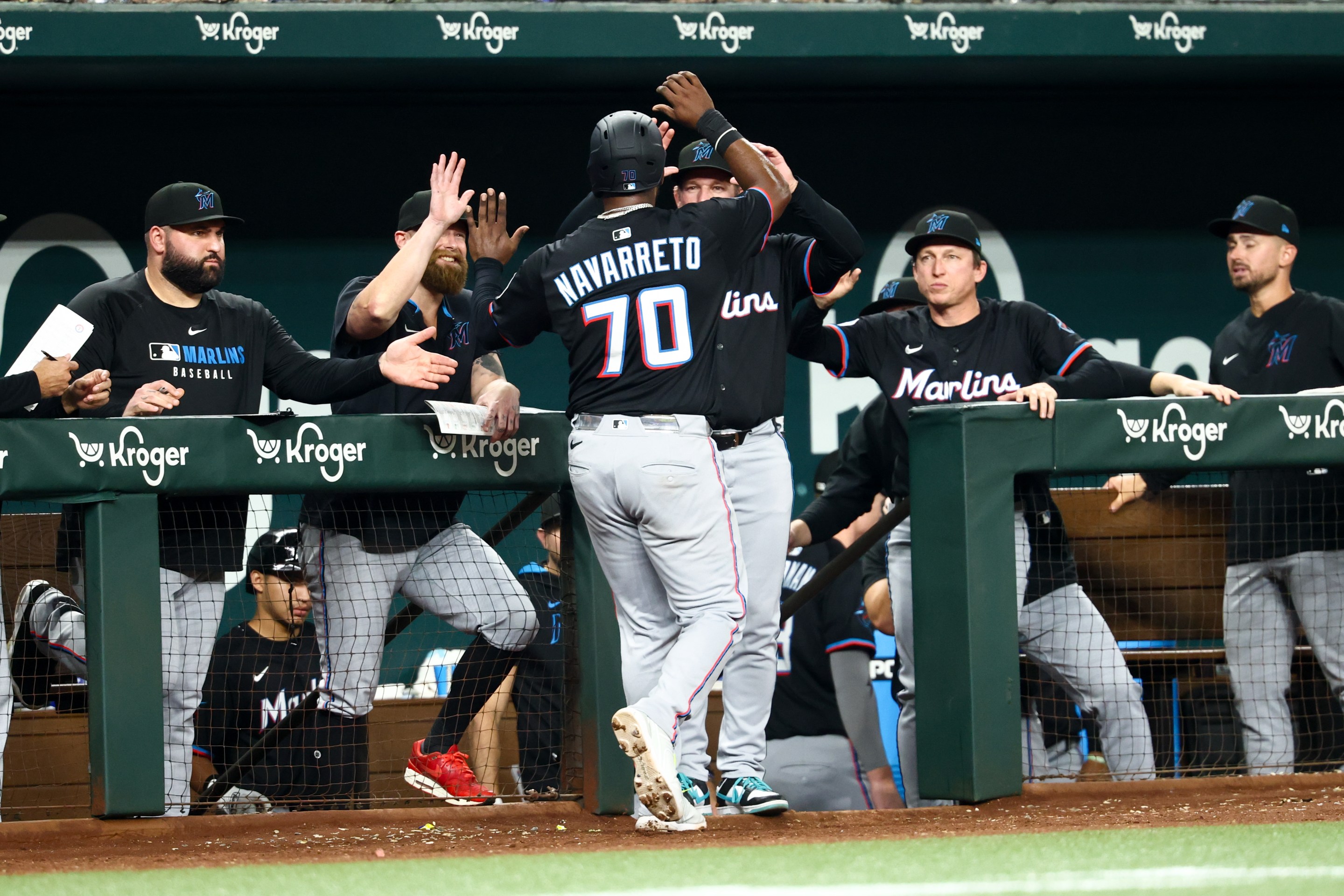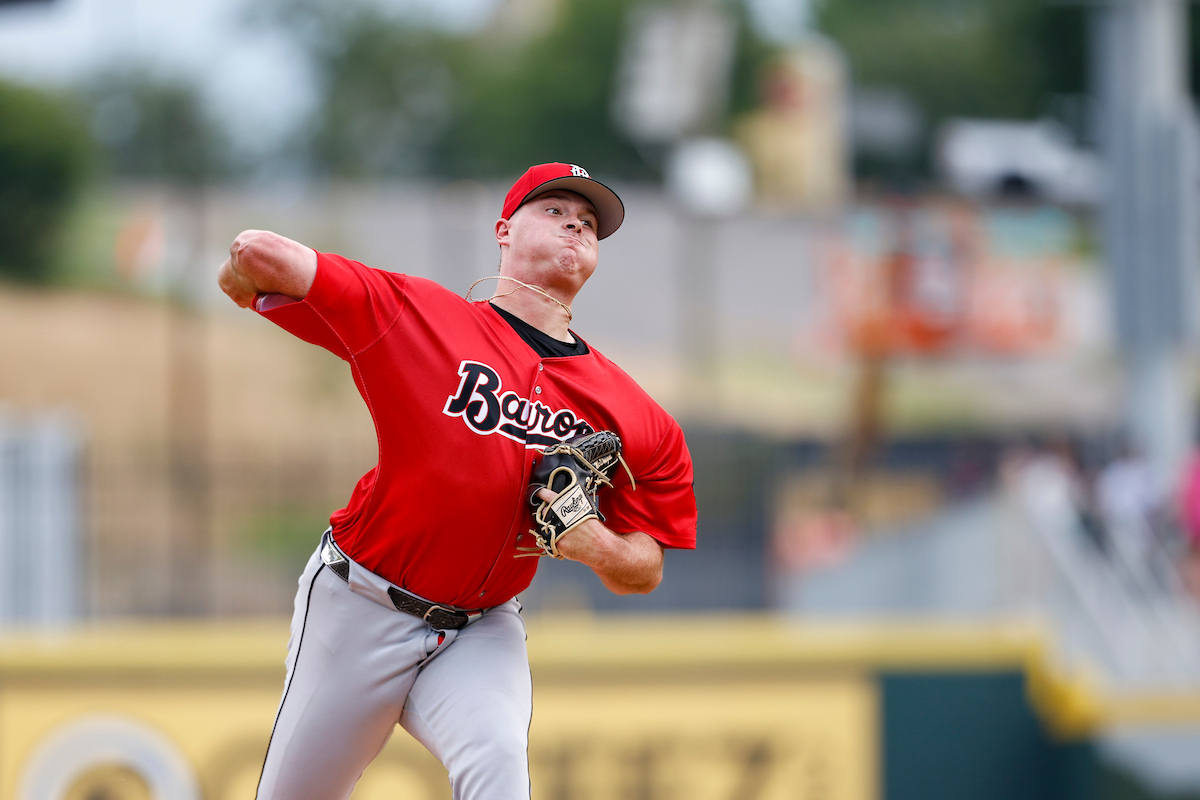Seeing as how the World Series is already being framed in some corners as the Tomahawk Choppers vs. the Largely Unpunished Cheaters -- with some games being played at the park that lost the All-Star Game -- so the news of a looming lockout won't really diminish the romance of the Fall Classic.
In the last dormant day before the series between the Astros and Braves begins, an article from Associated Press' Ronald Blum painted a dreary forecast come December:
Baseball’s ninth work stoppage and first in 26 years appears almost certain to start Dec. 2, freezing the free-agent market and threatening the start of spring training in February.
Negotiations have been taking place since last spring, and each side thinks the other has not made proposals that will lead toward an agreement replacing the five-year contract that expires at 11:59 p.m. EST on Dec. 1.
There hasn't been much news about offers exchanged by the league and the MLBPA, and the ones that we know about -- which included a salary floor but also a lowering of the luxury tax cap, and universal free agency at 29½ with an firm arb-year money pool -- don't seem intended to put a real dent in negotiations.
New York Daily News columnist Bill Madden says the winter meetings are being cancelled ...
... which would only be worse news if they were to be held in Nashville, which seemed like the original plan for 2021 before the pandemic took the 2020 meetings off the calendar.
It's only fitting that baseball would lock out players right at a key point of the White Sox's evolution into World Series threats, given that the strike in 1994 interrupted the White Sox's previous best shot at establishing a golden age. As we discussed way back in 2018, we're basically all living in a Jerry Reinsdorf Groundhog Day simulation where he has to learn that his feelings about labor negotiations can't poison the product.
Reinsdorf supposedly isn't a part of the labor committee this time around, and he's trying to sound less hawkish about it:
Whether that has galvanized players for a more vigorous fight against those provisions this time around, “I know this,” Reinsdorf said. “I looked at our last offer, and boy, it looked to me like it was a very fair offer.”
That was the recently reported offer that included a payroll “floor” for teams, he said, but one that also included a lower luxury-tax threshold than any of the last four years.
“I’m not saying that they should have accepted it, but it’s certainly something to negotiate off of,” Reinsdorf said. “I don’t know; I don’t have a feel [for the progress]. I just hope it works out.”
But nobody can ignore a four-decade track record for two separate Chicago teams where he'll exercise whatever power he has in an attempt to wrestle a deal in his favor, regardless of the kind of grip he has on the levers.
I'm not too concerned with the idea of a work stoppage itself, if only because 26 years is a long time to go without one, and labor occasionally has to stand firm to try to reset terms. It's especially true in a lockout situation, where players can often get the brunt of the ire for a freeze that the league initiated.
Blum outlined one potential future by looking at the most recent lockout lockout ...
This lack of pace in negotiations is similar to what occurred in 1989-90, when the agreement expired Dec. 31 and owners announced on Jan. 9 that a lockout would begin Feb. 15 absent an agreement. A deal was reached March 1 and opening day was delayed a week until April 9, causing 78 games to be postponed and rescheduled.
... although as Marc Normandin at Baseball Prospectus notes, the labor situation of 1990 can't really compare, as the players were galvanized by three seasons of collusion, a price the owners eventually paid, with severe grudges.
Given the postures of the parties, there probably won't be good news for weeks, even if a lockout never materializes. The negotiations over the 2020 season showed that the deadlines prompted activity better than anything else. These negotiations are larger and have much greater ramifications for the direction of the sport, so we're probably in for some hard-nosed jousting.
Some silver lining is that the slower pace of recent offseasons probably has fans better conditioned to absorb a temporary freeze, since players haven't come flying off the board at the start of free agency over previous winters. We also have recent experience in writing and talking around a complete lack of activity, so maybe that's the one way this pandemic has been useful.
(Photo by Arturo Pardavila III)






